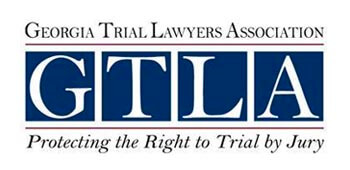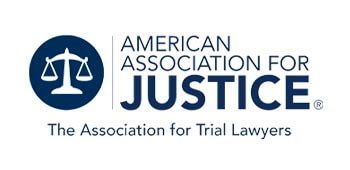A personal injury claim does not succeed because someone was clearly hurt. It succeeds because it was built right from the beginning. In Macon, we have seen people with legitimate injuries lose out because their claims were not documented well, handled strategically, or timed properly. The truth is, Georgia law does not reward victims for simply being injured. It rewards structure, evidence, consistency, and preparation. This guide walks through the core elements that make a personal injury claim solid from day one, before the first form is filled out and long before a settlement offer hits the table.
1. How the First 48 Hours Set the Legal Tone of Your Case
Right after you are hurt, the natural instinct is to rest, recover, and “see how it goes.” But legally speaking, those first 48 hours are the foundation of your case. What you say, where you go for treatment, and how you document the scene create the version of the story that insurers and defense lawyers will work from. If it is thin, late, or inconsistent, that version works against you. In Macon, we have seen people delay medical care by a day or two and then struggle to prove the injury was serious. Not because it was not, but because it was not documented on time.
The first two days should include at least three things: seeking medical attention, documenting what happened with photos and written notes, and avoiding unnecessary statements to insurers or employers until you have spoken with a lawyer. Each of these steps helps preserve the facts. And in Georgia, where comparative negligence rules reduce your compensation based on how responsible you seem, being prepared early keeps the law working in your favor, not against it.
2. Why Thorough Medical Documentation Wins Georgia Injury Cases
Insurance adjusters do not evaluate how you feel. They evaluate what your records show. That is why medical documentation is more than a formality. It is the blueprint for your entire claim. In Macon courts, we have seen injury cases swing dramatically based on whether the plaintiff had consistent treatment records or scattered visits. If you go to the ER once and never follow up, the assumption is you recovered. But if you show a pattern of treatment—diagnostics, therapy, progress notes—then the defense has to take your condition seriously.
We always tell clients: document not just that you are in pain, but how it affects your life. If you cannot sleep, if you miss family obligations, if you stop doing things you used to enjoy, say it. More importantly, make sure it is noted in your medical chart. Inconsistency is the biggest enemy of injury credibility. And in Macon, where jurors expect people to show up and do the work, scattered care looks like a weak case. Strong records lead to strong results.
3. The Power of Photo and Scene Evidence in Macon Injury Claims
Photos do not lie, but they do disappear. After an injury, the scene changes fast. Vehicles are repaired. Store aisles are cleaned. Skid marks fade. Surveillance footage is erased. That is why preserving visual evidence early makes a huge difference. If you are able, take wide shots, close-ups, and angles that show context such as traffic lights, signage, floor conditions, or nearby hazards. In Macon, where claims often depend on local conditions like uneven sidewalks, faded paint lines, or construction zones, contextual photos help show the jury what really happened.
When clients cannot take photos, we try to send someone quickly or request footage before it is overwritten. We also collect 911 transcripts and dispatch logs. Together, these build a time-stamped trail that shows where you were, what happened, and how it was responded to. A blurry photo is better than no photo. But a complete set, with clear framing and timestamped sources, is the kind of proof that holds up in court.
4. Witness Statements: Real People, Real Credibility
Juries in Macon listen closely to people who saw what happened. They want to hear from someone without a stake in the case. That is where early witness statements come in. Someone at the scene—a bystander, an employee, another driver—can confirm your version of events in ways paperwork never could. But that testimony loses power if it is gathered too late. People forget. Their confidence drops. Or worse, the other side gets to them first and frames the narrative differently.
A strong witness statement includes what they saw, what they heard, and why they remember it. We always ask them to describe details like weather, timing, traffic, body movement, and what was said. Specifics build credibility. A general “I think it was their fault” is not enough. In Bibb County, we have seen juries swayed by neighbors, store clerks, even delivery drivers, because what they said made sense and matched the scene. Getting those voices into your case early strengthens everything that follows.
5. Protecting Your Claim from Insurance Tactics in the Early Stages
Insurance companies in Georgia have a playbook, and the first few chapters are all about shaping your story before a lawyer gets involved. They will ask for clarifying details, request blanket medical authorizations, or suggest you do not need an attorney. They may offer a settlement before you have even healed. It sounds cooperative. It is calculated. In Macon, we see these moves weekly. And once you have handed over too much, you cannot pull it back.
Your response to early contact from insurers should be limited and polite. Provide basic facts like date, location, and vehicles involved, but never speculate or explain your injuries in detail. Never sign anything without legal review. A strong personal injury claim does not just include facts—it limits exposure. Your job is to preserve what you know, not over-share what you assume. Early silence is often smarter than early talking.
6. How Consistent Medical Follow-Up Strengthens Your Case
Initial treatment proves something happened. Continued treatment proves it still matters. We see it all the time in Macon: someone goes to the ER, then skips their follow-up because they are busy or feeling slightly better. Then the pain returns—but the record is broken. And the insurance company uses that break to say the injury was not serious. Or worse, that something else caused it. Consistency in your care is what keeps your injury alive on paper.
That does not mean going to the doctor every day. But it does mean keeping appointments, doing what your provider recommends, and communicating when things get worse. Treatment journals, rehab logs, even prescription refills help show a continuous pattern. And in court, that pattern speaks louder than any testimony. Especially here in Middle Georgia, where judges and jurors want to see follow-through, not just complaints.
7. Why Communication with Your Lawyer Must Stay Open
A strong claim is not just about paperwork. It is about partnership. Your lawyer needs to know what is happening with you in real time. If you miss work, get a new diagnosis, receive a lowball offer, or even feel overwhelmed, say so. We tell our Macon clients this from the start: silence delays progress, and delay weakens leverage. Every piece of information you share helps us shape strategy, file documentation on time, and keep your case moving.
Strong communication also prevents problems. If the insurance company contacts you directly, we need to know. If a witness is changing their story, we need to step in. These moments might seem small, but they ripple. The best cases we have handled were built on steady updates, honest conversation, and shared preparation. Do not wait for things to get serious. In personal injury law, they already are.
8. Finalizing Claims in Georgia: Timing, Strategy, and Getting It Right
Most injury victims assume the goal is simply getting to a number. But in Macon, what matters is how you get to that number. Timing matters. Settling too soon can leave long-term care out of the equation. Waiting too long can weaken urgency and lose evidence. The strategy is finding the moment when your treatment is stable, your costs are clear, and your lawyer has documented everything the insurer needs to see. At that point, settlement is not just likely. It is appropriate.
Georgia does not cap personal injury damages, but that does not mean every case is worth six figures. What it means is that every dollar needs to be justified. From mileage to rehab costs, from time off work to emotional distress, each component has to be supported by real documentation. That is what insurers respond to. That is what courts respect. And that is what we build, claim by claim, for real people in this town.
If you have been injured and want to make sure your case is solid from the start, talk to a personal injury lawyer in Macon who knows what matters in a Georgia claim. At Prine Law Group, we build injury cases like we are headed to trial, even if we never go, because that is how serious compensation is won. Let us make sure yours is one of them.





